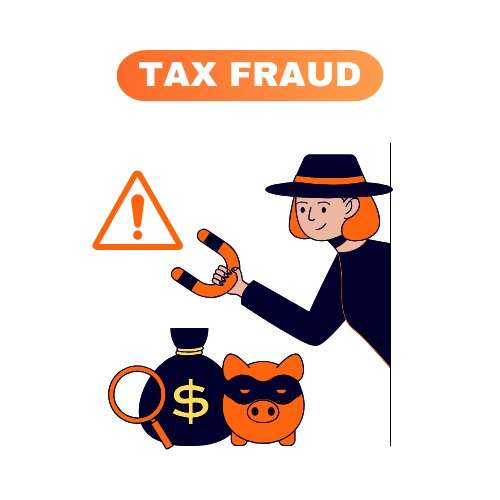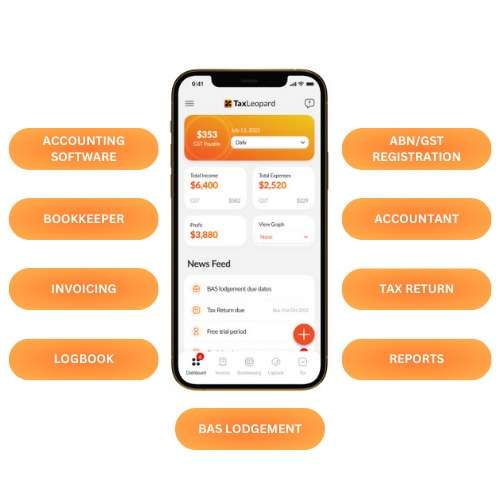“A silent threat lurks in the shadows of the economy.” As a nation renowned for its robust economic system and strict legal framework, Australia isn’t immune to the sly maneuvers of tax fraud. This cunning financial deceit not only undermines the integrity of the taxation system but also poses significant risks to the country’s fiscal health and social equity. In Australia, tax fraud manifests in various forms, from individuals underreporting income to sophisticated syndicates exploiting loopholes. As the government and authorities grapple with this invisible adversary, understanding the nuances of tax fraud becomes imperative for every citizen. It’s not just a matter of the law; it’s a collective responsibility that guards the nation’s economic welfare and social justice.
Understanding Tax Fraud
Tax fraud involves intentionally deceiving tax authorities to reduce one’s tax liability. This illegal act can range from simple misreporting of income to sophisticated evasion schemes. In Australia, the legal framework clearly outlines what constitutes tax evasion, emphasizing its illegal nature and the consequences that follow.
Types of Tax Fraud in Australia
In Australia, tax fraud manifests in various forms. This includes undeclared income, where individuals or businesses fail to report all their earnings. Another type is fraudulent tax refunds, where claims are made for refunds that are not due. Then there’s cash economy fraud, where transactions are done in cash to avoid taxation. Additionally, there are complex corporate schemes, often involving multiple entities and international transactions, designed to evade taxes. Each type undermines the integrity of Australia’s tax system.
The Impact of Tax Fraud

The economic consequences of tax fraud in Australia are significant. It leads to substantial revenue losses, impacting government funding for essential services like healthcare and education. Beyond finances, tax evasion has social implications. It erodes public trust in the tax system and creates an unfair burden on law-abiding taxpayers. When people perceive that others are not paying their fair share, it can lead to lower voluntary compliance and a more extensive tax gap.
Economic Consequences
The direct economic consequence of tax fraud is the loss of revenue for the government. These losses mean less funding for public services and infrastructure. It can also lead to budget deficits and increased national debt. Furthermore, tax evasion can distort market competition by giving fraudulent businesses an unfair advantage over those that comply with tax laws. This imbalance can hinder economic growth and innovation.
Social Implications
Tax fraud has a profound social impact. It leads to inequity, with honest taxpayers shouldering more than their fair share of the tax burden. This undermines social cohesion and trust in government institutions. Moreover, when public services are underfunded due to tax fraud, it’s often the most vulnerable communities that suffer the most. This can exacerbate social inequalities and hinder community development.
Common Methods of Tax Fraud
Identity theft is a common method of tax fraud where perpetrators use stolen personal information to file fraudulent tax returns or claim refunds. It’s a serious invasion of privacy and can have long-lasting impacts on victims.
1. Identity Theft
Identity theft involves criminals stealing personal details to lodge tax returns or claim refunds illicitly. They might obtain this information through hacking, phishing, or even through discarded personal documents. Victims of such fraud often face significant stress and financial loss.
2. False Returns
False returns involve submitting tax documents with intentionally incorrect information. This could include underreporting income, inflating deductions, or claiming credits one isn’t entitled to. Such actions are not only illegal but also contribute significantly to the tax gap.
3. Offshore Tax Evasion
Offshore tax evasion is another method where individuals or entities hide their income and assets in foreign countries to avoid paying taxes. It’s a complex form of fraud, often involving multiple jurisdictions and sophisticated financial structures.
Each of these methods presents unique challenges to authorities and highlights the ongoing battle against tax fraud in Australia.
High-Profile Cases of Tax Fraud in Australia
Case Studies
Australia has seen several notorious tax fraud cases. One such case involved a syndicate swindling $165 million from the Australian government through a payroll scheme. This elaborate scam involved companies paying wages to their employees but channeling the tax withholdings to fraudulent entities instead of the Australian Taxation Office (ATO). Another high-profile case was the Plutus payroll fraud, which shocked the nation due to its magnitude and the involvement of high-ranking officials. These cases underscore the sophistication and audacity of tax fraudsters, demonstrating the need for vigilant and robust tax enforcement.
Detecting and Reporting Tax Fraud
Indicators of Tax Fraud
Detecting fraud often requires vigilance and an eye for anomalies. Common indicators include unexplained discrepancies in financial records, lifestyles inconsistent with declared income, secretive financial transactions, and sudden changes in business performance. Other red flags include reluctance to provide necessary tax documents and inconsistencies in reported income across different years. Being aware of these indicators is crucial for the early detection and prevention of tax fraud.
How to Report Suspected Fraud
If you suspect fraud, it’s crucial to report it to the Australian Taxation Office (ATO). You can do this anonymously through the ATO’s confidential hotline or website. Provide as much detail as possible, including names, addresses, and specific instances of suspected fraud. The ATO takes such reports seriously and investigates them thoroughly. Remember, reporting suspected fraud helps protect Australia’s tax system and ensures everyone pays their fair share.
Advice for Taxpayers
Tips to Avoid Fraud
- Keep Detailed Records: Maintain accurate and comprehensive financial records.
- Verify Credentials: Ensure tax agents are registered with the Tax Practitioners Board.
- Beware of Scams: Be cautious of unsolicited calls or emails claiming to be from the ATO.
- Protect Personal Information: Safeguard your tax file number and personal details.
- Review Tax Returns: Double-check your tax return for any discrepancies before submitting.
- Stay Informed: Keep abreast of common tax fraud schemes and warning signs.
Also Read: Best Tax Advice for Australians
Seeking Professional Help
Navigating tax obligations can be complex. Seeking professional help from registered tax agents or financial advisors is advisable, especially for complicated tax matters. These professionals can provide guidance, ensure compliance, and help identify potential red flags in your financial affairs. However, always verify the credentials of any professional you engage and ensure they have a good track record and reputation.
TaxLeopard: Your Ultimate Ally in Tax Management
Navigating the complex world of taxes requires precision, vigilance, and, most importantly, the right tools.
This is where TaxLeopard leaps into the picture, offering a robust solution for all your tax-related needs. Imagine having a guardian who not only watches over your tax affairs but also empowers you to manage them with confidence and ease. TaxLeopard is designed to be that guardian.
TaxLeopard is not just another tax application; it’s a comprehensive ecosystem that integrates multiple facets of tax management into one seamless experience. From ensuring your books are meticulously kept to assisting with crucial tax liabilities, TaxLeopard stands as a beacon of reliability and efficiency.

In a world where tax fraud can lurk in the most unsuspecting corners, having TaxLeopard by your side is like having a vigilant ally, one that not only protects you from potential pitfalls but also guides you toward optimal tax health. Don’t let the complexities of tax management overwhelm you. Embrace the prowess of TaxLeopard and transform your tax journey from a path of uncertainty to a journey of confidence and compliance.
Conclusion
As we’ve delved into the intricate web of tax fraud in Australia, it’s evident that this issue is more than a mere financial concern; it’s a moral and societal challenge that impacts every facet of Australian life. From the high-profile cases that grab headlines to the subtle discrepancies that often go unnoticed, tax evasion erodes trust in the system and unfairly burdens honest taxpayers. The battle against tax evasion is ongoing, requiring vigilance from authorities, awareness from the public, and a commitment to integrity from all. It’s a shared responsibility that demands collective action and continuous vigilance.
As we reflect on the complexities and ramifications of tax fraud in Australia, it begs an important question: What role can each of us play in safeguarding the integrity of our nation’s financial future?
FAQs
1. What exactly constitutes tax fraud in Australia?
Tax fraud in Australia involves deliberate actions to evade tax obligations. This can include underreporting income, claiming false deductions, or hiding money in offshore accounts.
2. How does tax fraud affect the Australian economy?
Tax fraud significantly impacts Australia’s economy by reducing government revenue. This loss in revenue can lead to reduced funding for public services and affect overall economic health.
3. Are there specific penalties for committing tax fraud in Australia?
Yes, the penalties for tax fraud in Australia can be severe, ranging from hefty fines to imprisonment, depending on the severity of the offense.
4. How can I report suspected tax fraud?
Suspected fraud can be reported to the Australian Taxation Office (ATO) anonymously. This can be done through their hotline or website.
5. What measures are in place to prevent tax fraud in Australia?
Australia has various measures to prevent fraud, including stringent laws, regular audits, and sophisticated data analysis techniques used by the ATO.


